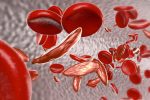Endari Now More Accessible to Texas Medicaid Patients
Written by |

Endari (L-glutamine), an approved oral treatment for sickle cell disease (SCD), has now been added to the Preferred Drug List in Texas.
The move will make Endari more accessible to people in the state who are insured through Medicaid, the government program that provides health insurance to low-income individuals, according to Emmaus Life Sciences, which markets the therapy.
“With this recent revision, Texas joins many other states in improving access to Endari for the treatment of sickle cell disease in Medicaid patients,” Emmaus said in a press release.
Texas Health and Human Services, or THHS, published its Preferred Drug List late last month. Medications included on this list were recommended by the Texas Drug Utilization Review Board based on their effectiveness, clinical significance, cost effectiveness, and safety.
Notably, medications that are on the preferred list do not require prior authorization — a process physicians sometimes must follow to prescribe certain medicines. It involves asking permission from a patient’s insurance company before issuing a prescription.
In other words, having Endari on the Preferred Drug List means that physicians will be able to prescribe it without first having to get permission from Medicaid to do so.
“We greatly appreciate that Texas Health and Human Services has eliminated the prior authorization criteria for Endari,” said Yutaka Niihara, MD, chairman and CEO of Emmaus.
“This change, based on review and input from the Texas Drug Utilization Review Board, will afford health care providers and their sickle cell disease patients direct access to Endari,” Niihara said.
“This is consistent with our goal is to make Endari readily available to patients throughout the country for whom it is indicated,” he added.
In SCD, genetic mutations result in the production of an abnormal form of hemoglobin — the protein that red blood cells use to transport oxygen through the bloodstream. This faulty version of hemoglobin causes red blood cells to become deformed and acquire a sickle-like shape. It also renders them particularly susceptible to a type of cellular damage called oxidative stress, which results from the buildup of oxidant molecules.
Endari works by increasing the levels of glutamine in the blood. Glutamine is an amino acid — one of the building blocks that cells use to make proteins — and in SCD, sickled red blood cells can take up glutamine to build anti-oxidant molecules, helping them to combat oxidative stress.
In the U.S., Endari was approved in 2017 as a treatment for SCD in individuals ages 5 and older.




